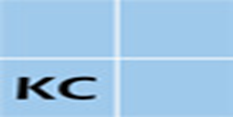Islamic Economics and the Global Financial System
Keywords:
Islamic economics, Global financial system, Islamic finance, Sustainable development, Social justice, Profit-sharing, Risk-sharing, Ethical investment, Financial inclusion, Economic stabilityAbstract
Abstract: This paper explores the intersection of Islamic economics and the global financial system, highlighting the principles of Islamic finance and their implications for sustainable economic development. Islamic economics, rooted in the ethical and moral teachings of Islam, emphasizes social justice, equity, and the prohibition of interest (*riba*). By analyzing the unique features of Islamic finance, such as profit-sharing, risk-sharing, and asset-backed financing, this study examines their potential to address contemporary economic challenges, including financial crises and inequality. Additionally, the paper evaluates how Islamic financial institutions can contribute to a more resilient and inclusive global financial system. The findings suggest that integrating Islamic economic principles can enhance ethical investment practices and promote economic stability, offering a viable alternative to conventional financial models. This paper presents a comparative analysis of Islamic economic principles and modern financial systems in their responses to global economic crises. Islamic economics, grounded in ethical and moral values, prioritizes social justice, equity, and risk-sharing, fundamentally differing from conventional financial systems that often emphasize profit maximization and interest-based lending. By examining case studies of recent economic crises, such as the 2008 financial meltdown and the ongoing impacts of the COVID-19 pandemic, the paper evaluates how Islamic finance mechanisms, including mudarabah (profit-sharing) and murabaha (cost-plus financing), can mitigate financial instability and promote sustainable economic growth. Additionally, the research highlights the role of Islamic financial institutions in fostering financial inclusion and social welfare during crises. The findings suggest that integrating Islamic economic principles into modern financial frameworks can offer valuable insights and solutions for achieving a more resilient and equitable global economy.
























